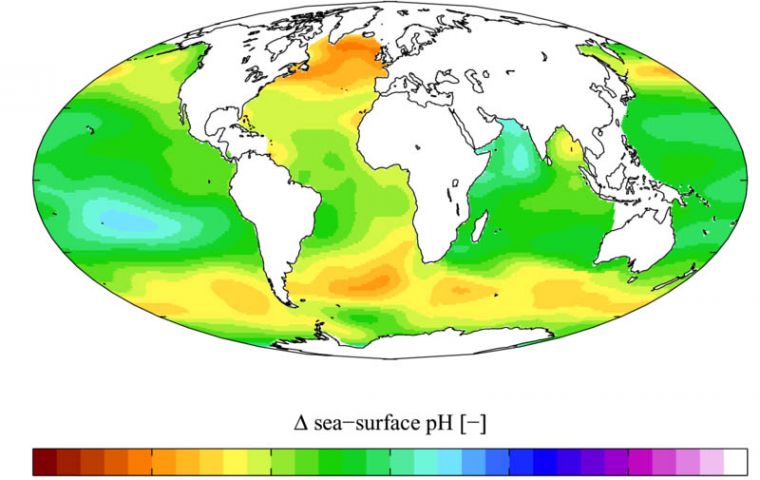MercoPress. South Atlantic News Agency
Global Warming Contributing to Rapid Ocean Acidification
 Chemistry of oceans changing at an unprecedented rate and magnitude, says the US National Research Council report
Chemistry of oceans changing at an unprecedented rate and magnitude, says the US National Research Council report Carbon dioxide emissions that contribute to global warming are turning the oceans more acidic at the fastest pace in hundreds of thousands of years, the U.S. National Research Council warns.
“The chemistry of the ocean is changing at an unprecedented rate and magnitude due to anthropogenic carbon dioxide emissions”, the U.S. National Research Council said in a statement Thursday. “The rate of change exceeds any known to have occurred for at least the past hundreds of thousands of years.”
Ocean acidification eats away at coral reefs, interferes with some fish species' ability to find their homes and can hurt commercial shellfish such as mussels and oysters by reducing their ability to make their protective shells.
When carbon dioxide is absorbed by the oceans, it reacts with sea water to form carbonic acid. Unless human carbon dioxide emissions are curbed, oceans will grow more acidic, the report said.
Oceans absorb about one-third of all human-generated carbon dioxide emissions, including those from burning fossil fuels, cement production and deforestation, the report said.
Scientists have been studying this growing problem for years, but ocean acidification has generally had a low priority at international and U.S. discussions of climate change.
Ocean acidification was centre stage at a congressional hearing Thursday, the 40th anniversary of Earth Day in the United States.
“This increase in [ocean] acidity threatens to decimate entire species, including those that are at the foundation of the marine food chain,” Democratic Senator Frank Lautenberg of New Jersey said.




Top Comments
Disclaimer & comment rulesCommenting for this story is now closed.
If you have a Facebook account, become a fan and comment on our Facebook Page!